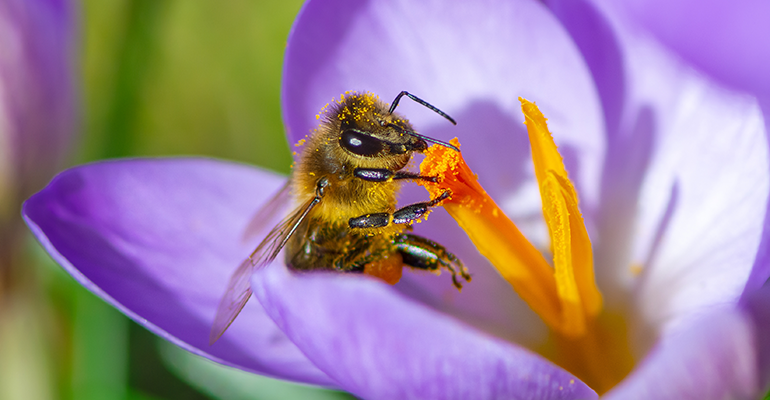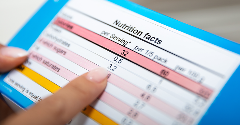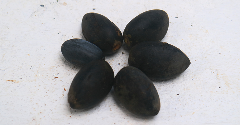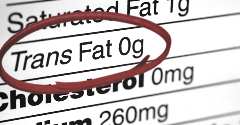US consumers make a beeline for honey-sweetened products
4 Oct 2022Honey-sweetened products are enjoying rising demand amongst US consumers, perceived as an all-natural product, according to recent USDA figures.
Recent figures released by the United States Department of Agriculture (USDA) suggest honey demand has reached an all-time high in the US, with consumption along with ‘made-with-honey’ products totalling 618 million pounds (lb) in 2021. The previous record was 596 million pounds in 2017.

“We are thrilled to see the results of this study,” says Margaret Lombard, chief executive officer of the National Honey Board.
“It means that consumers are beginning to understand when you choose honey you are not only getting a perfect all-natural sweetener, but you are supporting honeybees and beekeepers who help to feed the world."
Product launches with honey: Ice cream, ketchup, and energy bars
Recent years have seen a spate of product innovation using honey as a sweetener or for added flavour. In 2018, Unilever-owned Hellmann launched a honey-sweetened ketchup made with only six ingredients. Meanwhile, Kellogg-owned brand RX, has offered an ‘on-the-go’ solution with the release of ‘RXBar A.M,’ its range of clean-label energy bar that uses honey and coconut sugar to provide the sweet taste.
US ice cream brand Häagen‐Dazs continues to carry the Xerces Society's Bee Better Certified Seal on its products containing almonds, reassuring consumers the nut was grown and harvested in a 'bee-friendly' manner.
US consumers eat honey for health and sustainability
The plight of bees and its role in the honey making process was cited as a key purchasing factor in the National Honey Board’s 2021 Attitudes and Usage study.
Surveying 2,000 US consumers, the study found the most popular reasons for increased honey consumption were split between antioxidants and bee health. Despite its high sugar content, honey has been described as an immune system booster, thanks to its antimicrobial, anti-inflammatory, and antioxidant properties. Research has also pointed to its antiviral effects that may offer protection from flu.
However, domestic production is not enough to meet demand in the US. Since 1991, imports of honey grew by an average 7.5% per year, or 17 million pounds, to fill the supply deficit from the declining domestic honey production.
“Imports have exceeded domestic honey production since 2005 and accounted for 74% of total US honey supplies in 2021, up from 27% in 1991,” the USDA report states.
 © AdobeStock/manfredxy
© AdobeStock/manfredxy
Startups are making bee-free honey
Thus, environmental concerns have given way to alternative solutions to meet demand. Startups, such as Bee-io Honey, are now touting innovative ways to produce honey in the lab setting.
The food tech firm has begun scaling up development of its cultured honey production system, which uses a fermentation process and bioreactors, to produce in microorganisms, proteins normally produced by bees. The proteins are then blended with plant-derived natural nectar components to make honey.
Another startup in this space is MeliBio, a San Francisco-based firm that has just raised $5.7 million in funding to scale and commercialise its bee-free honey.
The process, which was previously named TIME’s Best Inventions in 2021, also uses a fermentation-based approach to produce honey that the firm says is molecularly identical to traditional honey.
“We know that science can produce delicious and nutritious honey at no cost to our precious bees,” says Darko Mandich, CEO & Co-Founder of MeliBio.
“At MeliBio, we are here to introduce certainty in the supply chain and help companies simplify their honey sourcing, while making their honey-based formulations sustainable and delicious.
“Together with our clients, we can make the future of honey better, for both humans and for bees.”
Related news

Chinese food brand wants to give customers ‘the full experience’
16 Dec 2022
Food brand Xiao Chi Jie is revamping Chinese cuisine for the modern American consumer. The Washington-based company sells regional Chinese specialties like soup dumplings, noodle kits, and barbeque skewers direct-to-consumer in the US.
Read more
Regulations spur healthy snacking in Europe
15 Dec 2022
Healthy snack demand is on an upward trajectory in Europe, fuelled by products attaching health halos to their products, according to latest figures by Euromonitor – but regulations may be the real driver.
Read more
Could the EU-Mercosur trade deal be revived?
14 Dec 2022
The re-election of Luiz Inácio da Silva, or Lula, as president of Brazil has prompted speculation that the free-trade agreement between the EU and South American Mercosur bloc could be revived – but the European farming sector has concerns.
Read more
Could menopause-supporting products be the next big opportunity?
13 Dec 2022
As supplement brands launch products to relieve the symptoms of menopausal women such as nutraceutical gummies, the unmet needs of this group is attracting government attention in the UK.
Read more
Plant-based fish and seafood launches around the world
12 Dec 2022
From pea protein-based prawns to microalgae-based tuna alternatives, plant-based alternatives to fish and seafood are on the rise around the world.
Read more
Editors’ choice: Our roundup of the most innovative sweets, snacks and bakery products
9 Dec 2022
The sweets, snacks, and bakery categories are an exciting area, full of fresh and innovative products which are constantly adding meaningful value to the sector.
Read more
Functional food in Japan centres on health and proving claims
8 Dec 2022
The latest Japanese functional food and drink trends put health and product efficacy firmly on the production agenda for new releases.
Read more
Swedish food agency: One in 10 coffee brands contain excess acrylamide
7 Dec 2022
New findings from the Swedish Food Agency have revealed three of 29 coffee products sampled contained acrylamide above limits, reinforcing the link between levels and degree of roasting.
Read more
‘Super nut’? Indonesia’s ‘best kept secret’ wins EU novel food approval
6 Dec 2022
A previously obscure, nutrient-rich Indonesian nut is set to hit European shelves after winning EU novel foods approval that could also help protect under-threat kenari forests on the archipelago.
Read more
Philippines to restrict trans fats in processed foods
5 Dec 2022
Use of artificial trans fats in pre-packed processed foods will be restricted in the Philippines as the country looks to eliminate its consumption from other sources too.
Read more